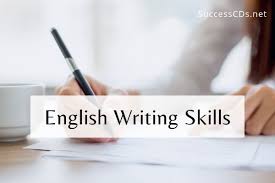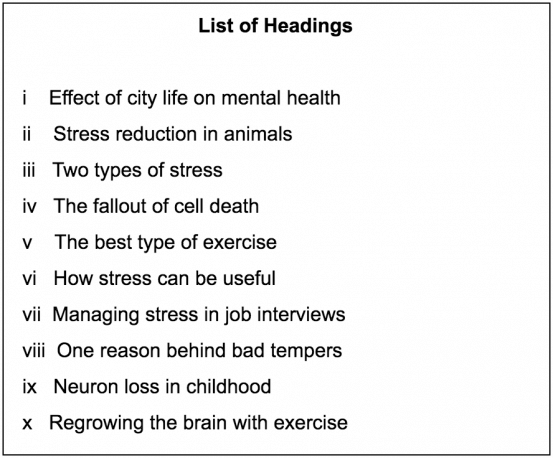Section outline
-

-
Farjana Yesmin Tithy
farjana.eng@diu.edu.bd
01955275030 -

-
Google meet link
-

-
Course Summary:
The course will be suitable for learners who have entered tertiary level of education and have to study through the medium of English, but are not skilled enough to meet the demands of academic reading and writing. The course will help learners attain Study Skills necessary for studying in English. There will be focus on reading academic texts and writing for academic purposes. The course will also orient learners with IELTS General Training.
Objectives:
After completing the course, students will be able to-
i) Recognize and write different types of sentences
ii) Write summary
iii) Find information by skimming and scanning texts
iv) Acquire vocabulary on the Academic word list
v) Recognize and write various types of Academic Prose
vi) Recognize and respond to various question formats on the IELTS
vii) Deliver an oral presentation based on reading/listening
Learning Outcome: Reading
- guessing the meaning of words from contexts
- reading academic descriptions
- understanding process
- reading for main ideas and supporting details
- distinguishing facts from opinion
- supporting opinions with evidence
- expressing cause and effect relationship
Learning Outcome: Writing
- writing coherent and cohesive paragraphs
- developing focus and formulating hypotheses
- supporting ideas with evidence
- paraphrasing, summarizing, quoting etc.
- writing an argumentative essay
The above will be taught in the context of texts, tasks and activities – and will involve the practice of skills of listening, speaking, reading, and writing.
Assessment:
There will be class tests/quizzes, a midterm and a final examination. Tests and exams will be conducted as per university practices. Grades will be awarded as per UGC guidelines.
Students having less than 80% attendance in class will not be allowed to sit for the final examination. Students will have to attain minimum D grade to pass the examination, failing which they will have to retake the course.
Resources:
English for Academic Purposes 1 & 2 – British Council and UGC
Teaching Plan
Lesson
Topic
1
Lesson 1 - Understanding and using the language of definitions and examples (page 1 – 8)
2
Lesson 2 - Expressing similarities and differences (page 9 – 14)
3
Lesson 3 - Understanding process (page 17 – 22)
4
Lesson 4 - Guessing meanings of words from contexts, title matching (page 23 – 26)
5
Lesson 5 - Expressing cause and effect relationship (page 27 – 31), QUIZ 1
6
IELTS writing task 1 introduce and practice (annex)
7
Lesson 7 - Reading for main ideas and supporting details (page 41 – 46)
8
Lesson 8 - Distinguishing facts from opinions, supporting opinions with evidence (page 47 – 51)
9
Lesson 9 - Expressing agreement and disagreement (page 52 – 56), QUIZ 2
10
Matching headings, Flow chart completion & Identifying information (true/false/not given) – IELTS practice (annex)
11
Review session/Mock Exam
12
MIDTERM EXAMINATION
13
Lesson 15 - Writing coherent paragraphs (page 81 – 87)
14
Lesson 16 - Writing cohesive paragraphs (page 88 – 91+110+135)
15
Lesson 18 - Supporting ideas with evidence (page 104 – 109)
16
Lesson 19 - Paraphrasing, summarizing, quoting, synthesizing and referencing (page 111 – 118)
17
Lesson 19 - Paraphrasing, summarizing, quoting, synthesizing and referencing (page 111 – 118) ASSIGNMENT
18
Lesson 21 - Writing an argumentative essay (page 125 – 130)
19
IELTS writing task 2 introduce and practice (annex)
20
Reading – matching information & matching features (annex)
21
QUIZ 3
22
Reading – Short answer questions and multiple choice question (annex)
23
Review session/Mock Exam
24
FINAL EXAMINATION
-
-
Be careful about plagiarism.
Daffodil International University
Department of Computer Science and Engineering
Faculty of Science & Information Technology
Midterm Exam Examination, Summer 2021 @ DIU Blended Learning Center
Course Code: ENG123 (Day/Evening), Course Title: Writing and Comprehension
Level: 3 Term: 3 Section: A,D
Instructor: Farjana Yesmin Modality: Open Book Exam
Date: Sunday 15 November , 2021 Time: 06:00am-8:30am
Two and half hours (2:30), Marks: 25
-
-
-
After this lesson, students will be able to:
distinguish between six verb tenses
identify incorrect and correct verb tense in text
explain common verb tense errors
-
-
-
-

-
Read the story and write the ans of the MCQ
-
-
- to raise awareness of the skills needed to answer task type 5,-including identifying topic sentences
- understanding the main idea and
-choosing the most appropriate heading
- to practice these skills and to complete a task type
-
Questions 1-5
Match paragraphs A-E above with the headings i-vii. Some headings may not be used.

1. Paragraph A .................
2. Paragraph B .................
3. Paragraph C .................
4. Paragraph D .................
5. Paragraph E .................
-
List of Headings
i A solution which is no solution
ii Changing working practices
iii Closing city centres to traffic
iv Making cars more environmentally friendly
v Not doing enough
vi Paying to get in
vii A global problem
-
List of Paragraph Headings
i. Town facilities
ii. Colonisation
iii. Urban divisions
iv. Architectural home styles
v. Types of settlements
vi. Historical foundations
vii. Domestic arrangements
viii. City defenses
ix. The residences of the rulers
x. Government buildings
-
-
-
-
This course will develop the students’ ability to
· take responsibility for completing tasks
· utilize digital literacy tools to develop collaborative skills
Given a real world problem, the student will be able to:
· work collaboratively;
· divide tasks;
-

-
-
-
This course will develop the students’ ability to
· use pre-writing strategies to plan writing
· generate ideas from sources to develop content
-
-
Given a writing prompt, the student will be able to:
· produce a well-organized academic writing with brainstorming;
plan writing from prompt and jot down ideas
-
major concepts a of pre-writing and major contents of academic writing
-
-
Assignments
-
7. You should spend about 40 minutes on this task.
Write about the following topic:
The amount of violence in movies has increased.
What effect does this have on viewers? Should governments censor movies?
Give reasons for your answer and include any relevant examples from your knowledge or experience.
-
-
Lesson Objective
This course will develop the students’ ability to
· deliver an effective oral presentation
· present information using digital tool
Lesson Outcome
Given a topic to research and present in class, the student will be able to:
· locate and select relevant information;
· give an oral presentation in class using effective delivery strategies
skills :work collaboratively, manage time, be prepared, comply with academic integrity rules
-
1.Religion is the cause of war .
2.Highly competitive environment is good for studying and working .
3.Village is better than city life
4. Social media can make people more social
5. Dieting is a good way to lose weight
6. Involvement of students in politics may transform the scenario.
7. What is better - to fight terrorism or to fight poverty .
8 . Online classes are not effective in educating students .
9.Arrange marriage is more effective than love marriage .
10. CCTV can protect our privacy.
-
for ted talk
-





